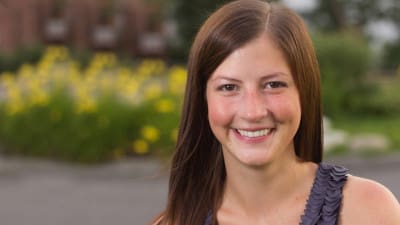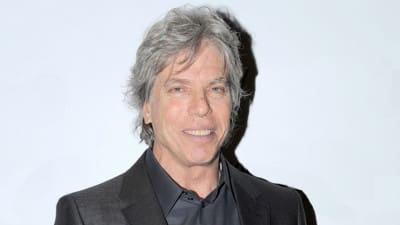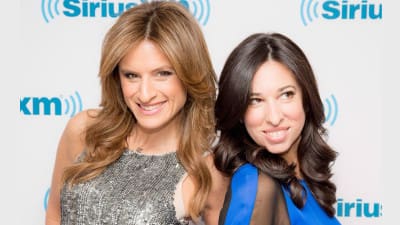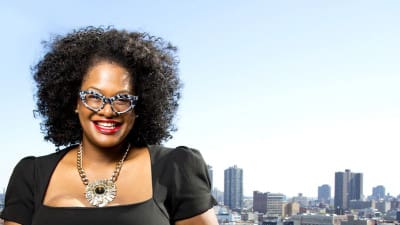According to a slew of media reports detailing how the economic crisis has disproportionately affected millennials, most 20-somethings are unemployed or underemployed and bunking on their parents’ sofa, eating Frosted Flakes for dinner and trying to figure out what to do with their lives. Except for Kara Taylor, that is.
At just 25, Taylor is riding high on the success of her young-adult thriller series: Prep School Confidential. Oh, and she recently snagged writer and co-executive producer credits on The Revengers, a new TV pilot created by Rashida Jones and Will McCormack and ordered by the CW network.
The temptation to call Taylor an overnight success or credit her good fortune to a well-connected relative in the industry is understandable. But make no mistake, haters: Taylor’s been hustling hard for years.
With Prep School Confidential, your first novel, tell me about the process from completed manuscript to published book. How did you find your agent? How long did it take to sell the book?
So I’ve obviously been writing most of my life, but I finished my first book my freshman year of college.
And I started to read up on the publishing industry [and] how to find an agent. And that book, it was just the cliché, terrible first book. So I eventually set that one aside, and my sophomore year of college I wrote another book. It was a young adult, contemporary novel, and it took me about six months to find an agent.
I did a major revision for the agent I signed with, who’s my agent now, and that book actually spent over a year on submission and it never sold. And during that time I wrote Prep School Confidential, which is the book that eventually sold.
So it was about two years, three completed manuscripts, and it was one book that eventually sold.
Did you always plan to pursue a traditional publishing deal, or did you ever consider self-publishing?
My goal was always just to find an agent and sign with a big publisher because back when I started writing, self-publishing wasn’t this phenomenon that it is now.
It still had the connotation that it was this vanity thing, where you pay somebody to publish your book. So I’d always had it in my mind that I was going to find an agent and find a publisher.
Around the time that I found my agent, self-publishing really had this upswing, and it was like this eBook revolution. [But] I never really considered it because, at that point, I’d worked so hard to find my agent and she’d worked so hard shaping the manuscript with me that we both just wanted to see it land with a traditional publisher.
Speaking of eBooks, you came into the publishing industry fairly recently, in the midst of all of the changes on the digital landscape. How has that affected your approach to your career?
I know with a lot of the [YA] authors, the pressure to churn out a book every year is enormous, and that’s why a lot of authors have turned to releasing short, eBook novellas in between their books.
My publisher is a little different. [At] St. Martin’s Griffin, their trade paperbacks, which Prep School Confidential is, come out every six to eight months, so the second book in the series is actually going to be out in March [2014].
So they stick with that model, and they really haven’t experimented a lot with the short eBooks. It’s not something that I’ve considered for this series, but I do know that to have longevity as a writer, if you’re not doing a book a year, it’s hard to stay in the game.
I know a lot of people are doing these serialized novels in eBook form, so that’s something that I’d definitely like to dabble in, especially since I write for TV, too. Episodic writing comes naturally to me.
OK, let’s talk about the TV writing. How did you land the writing position with the CW’s The Revengers?
My publisher [has] a new division called Macmillan films, [and] my editor, Brendan Deneen, has worked with the Weinstein Company in the past, so he has a lot of experience being a film rights agent. So the projects that he takes on at Macmillan are really focused on things that would translate well to film.
Prep School Confidential, once it was a finished manuscript, before it was even published, was making its way around the Hollywood circuit to producers and talent agents.
And it actually fell in the hands of Dan Dubiecki, who produced Juno and Up in the Air, and he just loved it so much that he called my editor and asked if I would be open to talking to him about other projects because he thought that my voice is really suited for television.
So I had a conversation with Dan, and I went out to California to meet him. I met some film agents; I wound up signing with United Talent Agency, and I had a general meeting with Warner Bros. Television.
They offered me a blind deal, which is basically a script commitment. So I had to write a script for them for this TV development season. I talked to a bunch of producers for a bunch of ideas that Warner Bros. had in house, and one day I got a call, “Hey, would you like to talk to Rashida Jones and Will McCormack? They have a new production deal at Warner Bros. Television. They wrote [the film] Celeste and Jesse Forever together, and now they’re trying to branch out to TV.”
I was like, ‘Of course I want to talk to Rashida Jones!’ So over about three or four months, I worked with Rashida and Will and a bunch of producers, and we came up with a pitch for [the show] and it wound up at the CW. And now I’m writing the pilot for this development season, and we’ll see if it gets picked up in January.
What tips do you have for other writers who want to break into TV?
I think the most important thing, and this is hard advice because it’s not something that you can really learn, [is to] just have a voice and a point of view and focus on branding yourself, whether it’s [with] humor or whatever.
Just be unique and be yourself, and write as much as you can.
I obviously broke into it in a strange way because it was actually the novel writing that helped me break into TV. So I think it’s good to keep in mind that there’s not one clear path or way to break into the industry. You have to put yourself out there in all mediums and all aspects and not write anything off, and [don’t] get discouraged, obviously.
I was writing books for two years before I found an agent, and I heard a lot of nos. I must have been rejected by over a hundred literary agents with my first book. So if you’re expecting instant results, it’s not going to be the career for you.
You just have to be patient and be in it for the long run.
So what is a typical writing day like for you? How do you balance TV and your books?
Well, I wake up around 8, and the first thing I have to do is answer all of my emails. I make sure to set aside a certain amount of time for the things like answering emails from readers, but I try not to get too bogged down by that.
And I’ll spend the first half of my morning working on book stuff because it’s early and the California people haven’t woken up yet. So I’ll work on the books until lunchtime, and I take a break.
And that’s normally when the TV people start their day, and if I’m waiting on notes from them, they’ll probably contact me in the afternoon. Sometimes I actually have to work until 10 [p.m.] my time because in the TV industry, they work till 7:30, 8 at night sometimes, just to churn out things, especially during development season.
So I have to be careful how I split up my day because it’s obviously hard to work on two things at once, a book or a TV show. I usually reserve the morning for books and night for TV.
Where do you see your career in the next five or ten years?
I would love to be writing for TV full time. I mean, as much as I love writing the novels, right now, the book series is a full-time job in itself.
I’d like to gradually transition to TV and then five, 10 years from now, go back and write the book I’ve always wanted to write—at my own pace, not under contract, not with any deadlines—and maybe see that go out into the world at the same time as I’m working on my TV show. In five years, I’d obviously love to be working on The Revengers still, if everything works out and it gets picked up.
But if not, I have a lot of other ideas for TV.
This interview has been edited for length and clarity.









